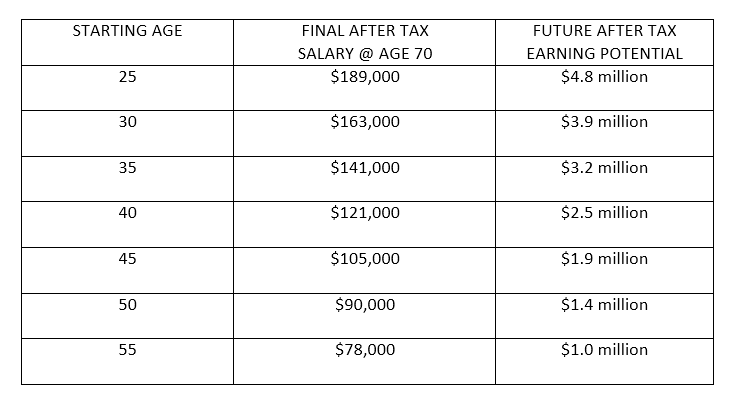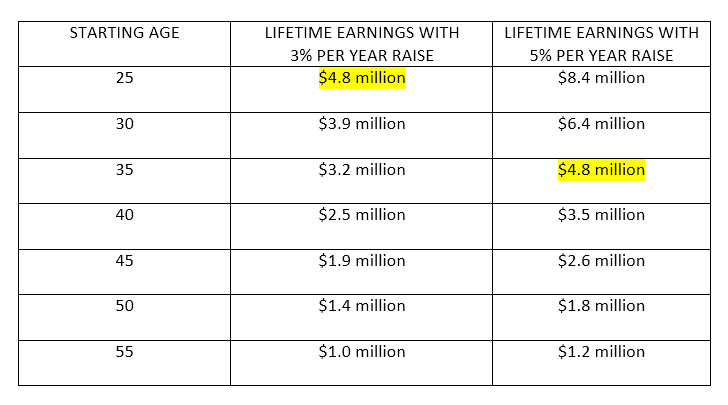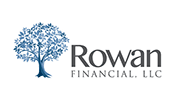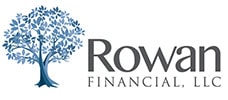Personal Finances 101 – YOU are Your Most Valuable Asset
Personal Finances Aren’t Just About Saving and Investing
When it comes to personal finances, most financial advisors focus on the saving and investing side of the equation. There is no doubt that this is very important.
You should definitely have a plan in place to save 10% or more of your income. And it’s also important to take a long-term approach to investing that enables you to capture the superior returns that have resulted when investors are willing to ride out the short-term ups and downs of the market.
However, in addition to these principles, it’s also critical to think about yourself and your career when you’re looking to take charge of your personal finances.
I Love Math!
You’ve heard the expression, “If all you have is a hammer, then everything looks like a nail,” right? If you’re a financial guy like me and think about numbers all day, every issue in life looks like a math problem after a while. The finances behind your career and future earning potential are no different.
Let’s look at a hypothetical situation:
- You are currently earning $75,000
- Your overall tax burden (federal, state and local) is 33%.
- This leaves you with $50,000 a year in take-home pay.
- Inflation and your salary increases by 3% every year.
- You plan to work full time through age 70.
Now let’s look at 7 theoretical workers ranging in age from 25-55. If we carry this math out through age 70, here’s where things land in terms of both a final salary and a total future after tax earning potential through age 70: I don’t know of many 25 year olds who have $4.8 million in the bank and let’s face it, most 40 year olds haven’t amassed $2.5 million either! So it’s clear that, in most cases, YOU are your most important asset in terms of your long term personal finances.
I don’t know of many 25 year olds who have $4.8 million in the bank and let’s face it, most 40 year olds haven’t amassed $2.5 million either! So it’s clear that, in most cases, YOU are your most important asset in terms of your long term personal finances.
Here are some choices I’ve made to protect and focus on ME in the context of my personal finances.
Choice #1 – Take Care of the Machinery
Both exercise and diet are critical components of your long-term health. There is no “one size fits all” approach to these, but some care in each is important.
Most mornings I start out with about an hour of exercise. Although I admire the people who do things like triathlons, you don’t need to kill yourself to get great benefits from exercise. I do enough walking, running, lifting and yoga to get my heart rate up a little bit and feel awake and refreshed to start my day.
And on most warm weather Saturdays, you’ll find Stacy and me at the Easton Farmers Market, which holds the distinction of being America’s oldest continuously operating open-air farmers market. Locally raised produce and meats make up the vast majority of our diet and we’ve said goodbye to almost all sources of sugar and processed food.
When you take care of your body, you show up for work with more energy and it will show in the productivity and creativity you bring to each task!
Choice #2 – Make Yourself Indispensable
This may seem like a tall order, particularly if you’re early in your career. Here’s a gauge to see where you are on this.
If you think about all your co-workers, at least half of them should be able to say, “Thank goodness [INSERT YOUR NAME] is here because……” and then sing your praises about one or more things that would absolutely fall apart if you weren’t around.
If this is true for you, great! And if not, see Choice #3, for what to do about it.
Choice #3 – Focus Upon Your Unique Ability
Your Unique Ability is a very small set of tasks that you do better than almost everyone else and that you’d do for free all day long because you love them so much.
Once you have your Unique Ability defined, focus more and more of your daily effort against those tasks and figure out how to delegate or shed those things that you struggle with and that drain the motivation out of you in an instant.
If you feel like you have the latitude within your current job to shape the focus of your work, press on! And if not, it may be time to update the resume and seek out work that’s more in alignment with the tasks that allow you to create the most value.
Choice #4 – Amp Up the Income
There are a number of levers to pull here. I do not recommend simply working longer or harder to earn extra money. I have never chosen to work more than 50 hours in a week for an extended period of time because that’s what’s important to me from a work life balance standpoint.
Instead, focus on identifying those few important tasks that add the most value to either your employer or your business and over a period of months or years, this focus will always be rewarded.
It is also more possible than ever to open a side business while working full time. I’ve been operating Rowan Financial for years now on a part time basis and you’ll find that if you’re focused on work you love, the extra effort will come easily to you!
And we’re not talking about doubling your income overnight here. An increase of 1 or 2% a year beyond inflation can make a huge difference over a career.
Going back to our previous example, let’s look at lifetime earning potential for our 7 workers and compare what happens when they get a 3% per year raise versus a 5% per year increase:
 Think about that – you could take a ten year vacation from age 25-35 and still earn the same $4.8 million with a 5% per year raise that someone starting at 25 makes with a 3% annual raise. Amazing!
Think about that – you could take a ten year vacation from age 25-35 and still earn the same $4.8 million with a 5% per year raise that someone starting at 25 makes with a 3% annual raise. Amazing!
Your Assignment:
When you’re thinking about taking charge of your personal finances, always remember that YOU are the most important part of the equation. Pick at least one of the 4 focus areas listed above and put plans in place to add to your future earning potential. This can be as simple as a focus on health and well-being or taking those first few steps toward opening the business you’ve always dreamed about. Good luck with whichever path you follow.
Originally published on Investopedia


